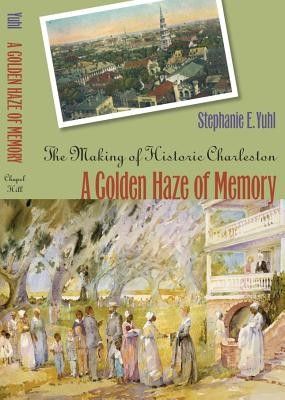
- We will send in 10–14 business days.
- Author: Stephanie E Yuhl
- Publisher: University of North Carolina Press
- ISBN-10: 0807855995
- ISBN-13: 9780807855997
- Format: 15.7 x 23.5 x 1.8 cm, softcover
- Language: English
- SAVE -10% with code: EXTRA
Reviews
Description
Charleston, South Carolina, today enjoys a reputation as a destination city for cultural and heritage tourism. In A Golden Haze of Memory, Stephanie E. Yuhl looks back to the crucial period between 1920 and 1940, when local leaders developed Charleston's trademark image as "America's Most Historic City."
Eager to assert the national value of their regional cultural traditions and to situate Charleston as a bulwark against the chaos of modern America, these descendants of old-line families downplayed Confederate associations and emphasized the city's colonial and early national prominence. They created a vibrant network of individual artists, literary figures, and organizations--such as the all-white Society for the Preservation of Negro Spirituals--that nurtured architectural preservation, art, literature, and tourism while appropriating African American folk culture. In the process, they translated their selective and idiosyncratic personal, familial, and class memories into a collective identity for the city.
The Charleston this group built, Yuhl argues, presented a sanitized yet highly marketable version of the American past. Their efforts invited attention and praise from outsiders while protecting social hierarchies and preserving the political and economic power of whites. Through the example of this colorful southern city, Yuhl posits a larger critique about the use of heritage and demonstrates how something as intangible as the recalled past can be transformed into real political, economic, and social power.
- Author: Stephanie E Yuhl
- Publisher: University of North Carolina Press
- ISBN-10: 0807855995
- ISBN-13: 9780807855997
- Format: 15.7 x 23.5 x 1.8 cm, softcover
- Language: English English
Charleston, South Carolina, today enjoys a reputation as a destination city for cultural and heritage tourism. In A Golden Haze of Memory, Stephanie E. Yuhl looks back to the crucial period between 1920 and 1940, when local leaders developed Charleston's trademark image as "America's Most Historic City."
Eager to assert the national value of their regional cultural traditions and to situate Charleston as a bulwark against the chaos of modern America, these descendants of old-line families downplayed Confederate associations and emphasized the city's colonial and early national prominence. They created a vibrant network of individual artists, literary figures, and organizations--such as the all-white Society for the Preservation of Negro Spirituals--that nurtured architectural preservation, art, literature, and tourism while appropriating African American folk culture. In the process, they translated their selective and idiosyncratic personal, familial, and class memories into a collective identity for the city.
The Charleston this group built, Yuhl argues, presented a sanitized yet highly marketable version of the American past. Their efforts invited attention and praise from outsiders while protecting social hierarchies and preserving the political and economic power of whites. Through the example of this colorful southern city, Yuhl posits a larger critique about the use of heritage and demonstrates how something as intangible as the recalled past can be transformed into real political, economic, and social power.


Reviews